What’s it like living in Valencia?
Aline lives in the beautiful city of Valencia. It wasn’t a decision made lightly, she and her wife plus two kids, had travelled the world looking for the perfect place to settle down.
A very interesting interview highlighting what makes Valencia so attractive to expats. People with kids will especially appreciate Valencia’s family-friendly environment. Aline covers that (and much more) below.
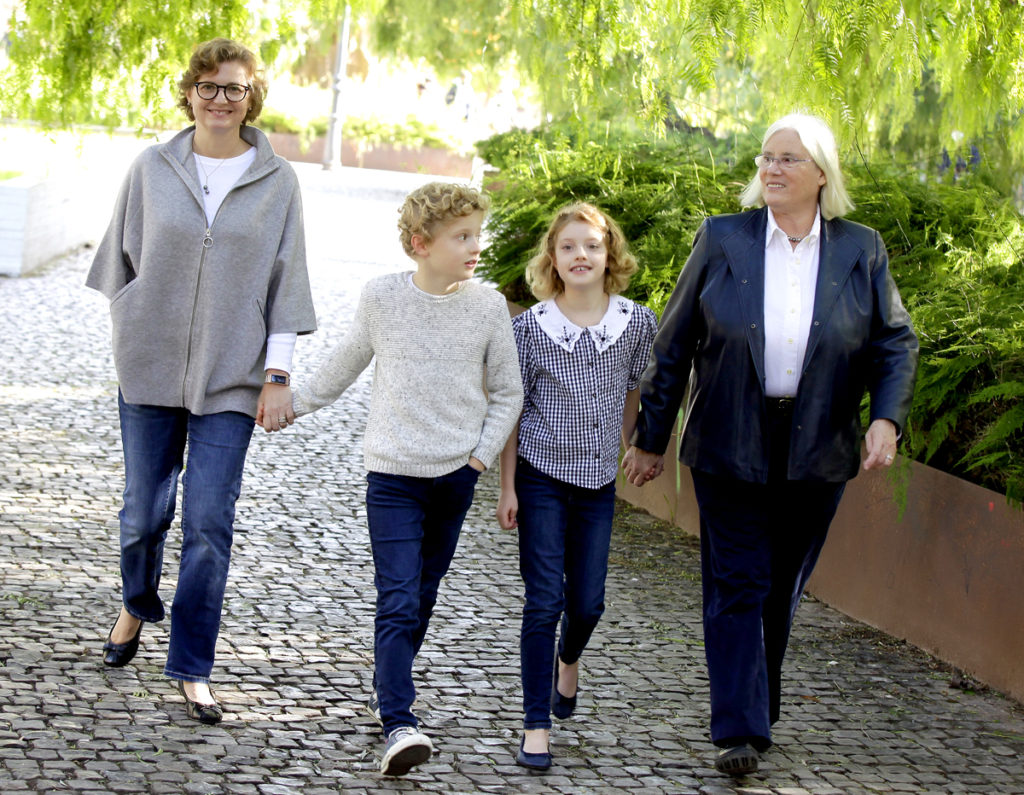
Name: Aline Deckers
Age: 53
Country of Origin: Canada
Number of years living in Spain: since August 2019
Hi Aline! I see you are a fellow Montrealer! What made you leave Canada to live in Spain?
We left Canada because my wife wanted to retire in a warm country, away from Montreal’s long and cold winters. She was treasurer at one of Canada’s biggest corporations as well as an aerospace engineer. I am a learning and development HR consultant and wrapped up my contracts in Montreal before moving here. After Covid I might see if I can find some work here (I have dual Canadian-Belgian citizenship and came here on my Belgian passport – so I can work in Spain).
Why did you end up choosing Valencia as your base?
We have 10-year-old twins. For years, we took the children on vacation around the world, visiting schools and communities to see if we could eventually relocate to any of these exotic places. We went to Polynesia, New Zealand, Costa Rica, and Cuba to name a few. We landed on Valencia for several reasons. First, the weather here is perfect. Not too cold, not too hot, there are still four seasons. Second, the children and I are Belgian citizens, making it easier to resettle in a European country. Third, we wanted to live in a country near our family and friends. We are a few plane rides away from both our Canadian and European families. Next, we needed to be where the children could go to school in French. Valencia has a French Lycée. We were also looking for a country with a good health care system and where the cost of living is not too high. Finally, we needed to live in a country where a family with two mommies could live without danger.

A few useful Resources
Buying Private health insurance in Spain. We recommend Innoinsure, they make it easy and offer different policies through various providers. And you don’t need a Spanish bank account – you can pay with foreign credit cards. More info here.
Spartan FX. Buying a house or car in Spain and need to transfer and exchange a large sum of money? More here.
Wise. For everyday transfers and exchanges of money from your home country. Nobody should be using banks anymore. More here.
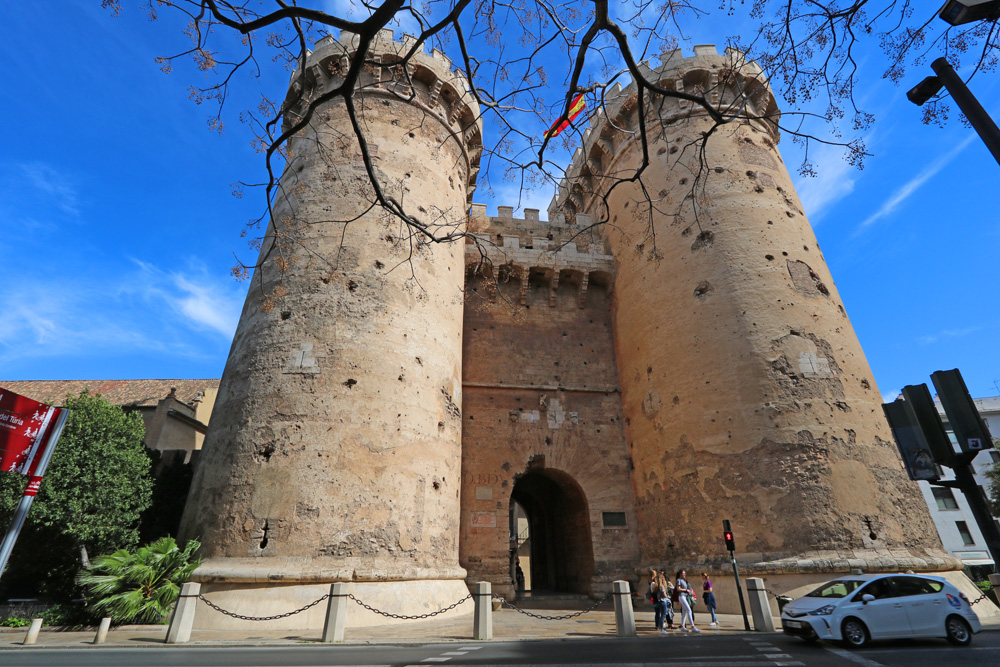
What do you like about living in Valencia? Is there anything you dislike?
Valencia is a great! A small city with big city attractions and personality, there is a world class aquarium and zoo, countless museums, great restaurants, a fabulous night life and the parks are divine. Still, you will not be stuck in traffic forever and with a bit of patience (which people have plenty of here) you will not be standing in endless lines either.
Valencians love fire and parties. There are many holidays but one stands out. Combine fire and party and it translates into “The Fallas”. Because of Covid we have not been able to attend one yet, but we have heard plenty about it. Celebrated in March and declared as an Intangible Heritage of Humanity by UNESCO, it is a feast for the senses. I can only imagine how the sound of petards, fireworks and cheering crowds resonate through your body as you take in the smell of flowers and the sight of immense colourful floats.
Most people here are open and kind. They love children and family is very important. When out shopping or seeing the doctor, people have always been friendly and helpful when they realize I am still learning Spanish. On Sunday you will hear people gather with their extended families for big meals. Saturdays, on the other hand, are reserved for spending time with friends. Valencians have different friend groups that they keep for most of their lives (friends from school, neighbour friends, friends from work, etc.). It might be hard to become part of one such friend group, but as they get to know you, they might invite you over to have a meal or grab a drink. Or you can create your own entourage with the many expats living in and around the city.
This is also a city where you live outdoors. You will see people of all ages bicycle, walk, run, rollerblade in the mornings and late afternoons to avoid the heat, and of course, in a group. The same day you can go for a swim at the many beaches, go for a stroll in the mountains overlooking the city, participate in a football match in Turia Park or go play tennis with buddies.
We dislike the overuse of plastic here. By the end of the week, we have at least three full garbage bags, and that is not for lack of trying. Also, people do not seem to mind throwing their trash out in natural parks. Old suitcases, bricks, building materials, clothes, books, mattresses and more are just dumped and left behind.
Note: Aline updated her situation in October of 2023, 2 years after this initial interview. See her update here.
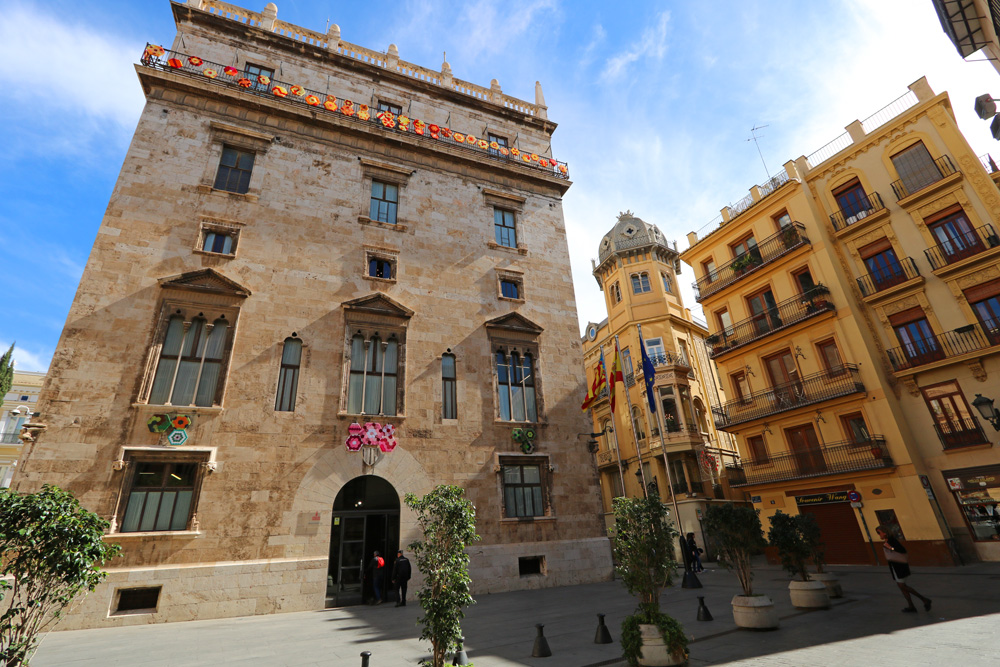
What (if anything) do you feel you most had to adjust to when coming to live in Spain?
The Spanish schedule has definitely been a challenge. If you are hungry before 1:30 PM, you are out of luck since restaurants open at that time for lunch until 4:00 PM. Same for eating supper with children; don’t count on getting a plate on your table before 8:30 PM. For the first year, we pretty much never ate out. Now, one and half years later, our afternoon also starts at 5 PM and the children’s bedtime is closer to 9:00 PM. Activities for children often start at 7 PM and we can now manage to remember that most stores and businesses close from 2 to 5 PM during the week.
Being away from family and friends has been a challenge, but I must say that with today’s technology we get to talk to them daily and that helps. Of course, the Covid lockdowns made it harder for us to meet new people but we hope that will change soon.
The waiting.. just waiting. Anything administrative takes time and everything needs to be stamped by one official or other. People will say that they will do something but that might be in a few minutes, hours, days or never. It just takes a while to figure out who will do what they say and how culturally appropriate it is to push. We have learned that to be polite people will agree to things so they avoid saying no.
Finally, let’s talk about food. One day we went for a walk in the mountains and stopped by a small outdoor restaurant. Everyone was eating something.. we were just unable to figure out what. We asked if we could eat and were promptly answered with no! Stunned, we finally figured out that people were not eating, but snacking! Yes, here people eat five distinct meals a day, each with their assigned dishes. El desayuno, el almuerzo, la comida, la merienda, la cena. We just happen to arrive when it was time to eat el almuerzo at 11:30 AM and people were munching on bocadillos brimming with eggs or sausages, and on patatas bravas. So, after much miming and gesturing we did get something to eat after all.
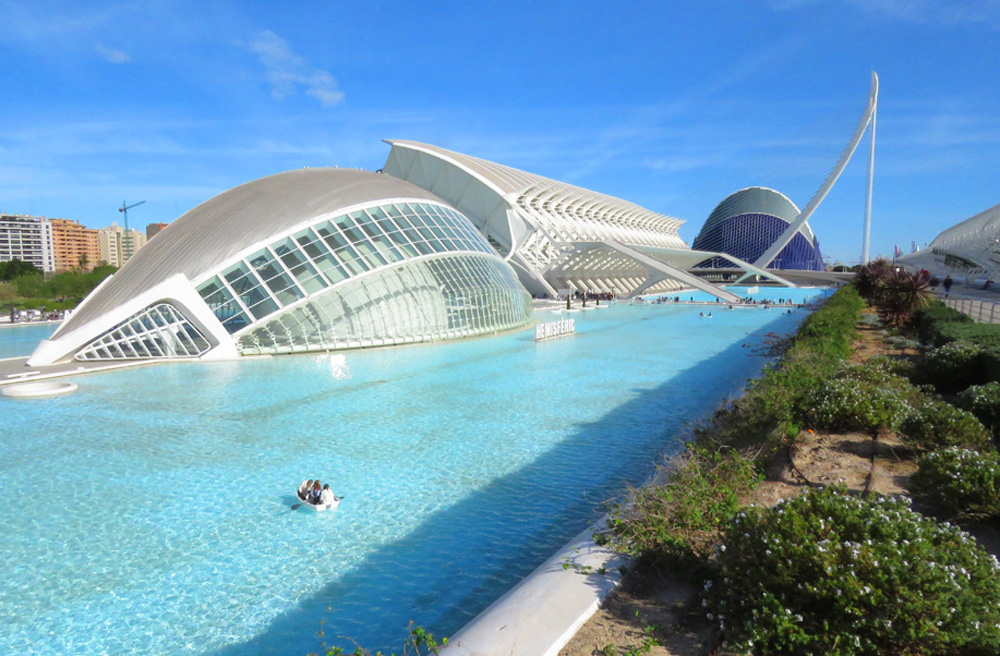
How is your Spanish? Did you learn Spanish before coming to Spain? You also have to deal with Valenciano—is this an issue for expats considering Valencia as a base?
We are bilingual French and English, and I also speak Flemish. We arrived without knowing a word of Spanish. The children picked it up quickly by playing with other children and attending extracurricular activities. For us it is more a challenge. We hired a private Spanish teacher. She comes once a week for a couple of hours and has a lot of patience. She has morphed into our Spanish grandmother and helps us navigate the culture. She even took me to the grocery store for a lesson on the types local fish, and the ins and outs of the famous “Jamón ibérico”.
Today, 18 months in, I can navigate in very, very basic Spanish. I can call someone over the phone, talk to a doctor, go shopping or engage in a basic conversation during the children’s activities. Still, it will take a while before we are all comfortable.
Valenciano is not much of an issue for us other than schooling. Public schools here are a mixture of Valenciano and Castellano (ie. Spanish), with sometimes some English thrown in. This means that if you want your children to learn Spanish they need to go to private school. For us French speakers, Valenciano is easy to understand. It is a joke among us that if we can read a sign without an issue it must be in Valenciano. The only unilingual Valencians we encountered were older people in the small villages. Otherwise, most people are bilingual Castellano-Valenciano. Young people today can also muster up a few English words, but if you want to live here, you need to master Castellano as a minimum.
What’s your daily life like in Valencia?
Well, there is the “before” and “after” Covid schedule. For the past year, with the children learning from home, this is what it looks like:
We wake up around eight. The children start their online class at 9 and go until 12. They attend a French online school. This gives us time to prepare meals and do housework. We eat lunch between 1:30 and 2 PM. In the afternoons we do schoolwork and after 5, we are off at extracurricular activities. In our case, piano and horse back riding. We come home at around 7:30-8 PM and eat supper. On the days there are no activities, we eat supper at 7 PM. At 9 PM the children go to bed and we have some time to ourselves. Most evenings I go for a 45-minute walk. This is also the only time I have to catch up on admin tasks and on any reading. We go to bed between 11 PM and midnight.
On the weekend we go for walks in the mountains or on the beach, we explore villages in the surroundings, visit museums, or hang out at the pool. We have learned that “la siesta” from 3 to 5 PM is sacred. God forbid you make noise; your neighbours will quickly remind you with the “here in Spain…” speech.
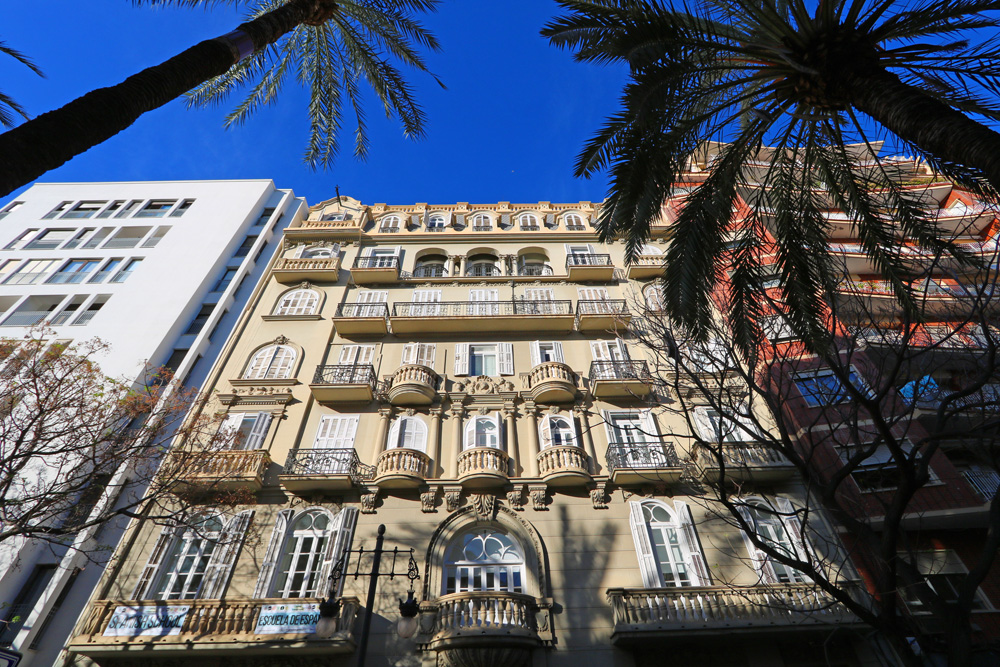
Do you take part in an Expat community? And is there a significant expat community in Valencia?
There is a significant expat community here which has mostly migrated online since the start of the pandemic. Through local expat Facebook groups, we have connected with other families and try, restrictions permitting, to get together for play dates, tea and walks. The Russafa neighbourhood downtown is home to many expats and is quite a hip ‘’barrio’’. Through social media we can see many expats connecting, exchanging information and helping each other out. For us, it is one of the ways we get to meet new people.
Do you have any tips (do’s and don’ts) for foreigners looking to settle in Spain?
The best advice we can give is to find a good relocation expert. Do your homework by connecting to local social media groups and researching the different options. Getting your residency paperwork ready and done correctly is a stretch even for the most seasoned expat! A decent relocation agent can tell you what you need to migrate to Spain from outside the Schengen area. Spain has 17 autonomous regions with each their own residency rules, so find a local agent. They can also help you find a gestor (a middle person between you and the Spanish bureaucracy, a bit like mixture of an accountant and a notary), a real estate agent, a good lawyer that speaks your language, schools, the right insurance, navigate the medical system, what to do with your drivers’ licence and more.
Before moving, get schools lined up because waiting lists can stretch over years, and learn about the tax implications of moving. Here you will be taxed a wealth tax on worldwide assets and income.
Next, get cracking on learning Spanish and once arrived on adapting to the Spanish schedule. You will miss out on much if you can’t participate in the local culture.
Finally, remember that you came to Spain and not the other way around. We believe that imposing our own values and ways of doing things is not fair, so we mostly stayed patient, flexible and kind but still persistent and astute through the whole residency and relocation process.
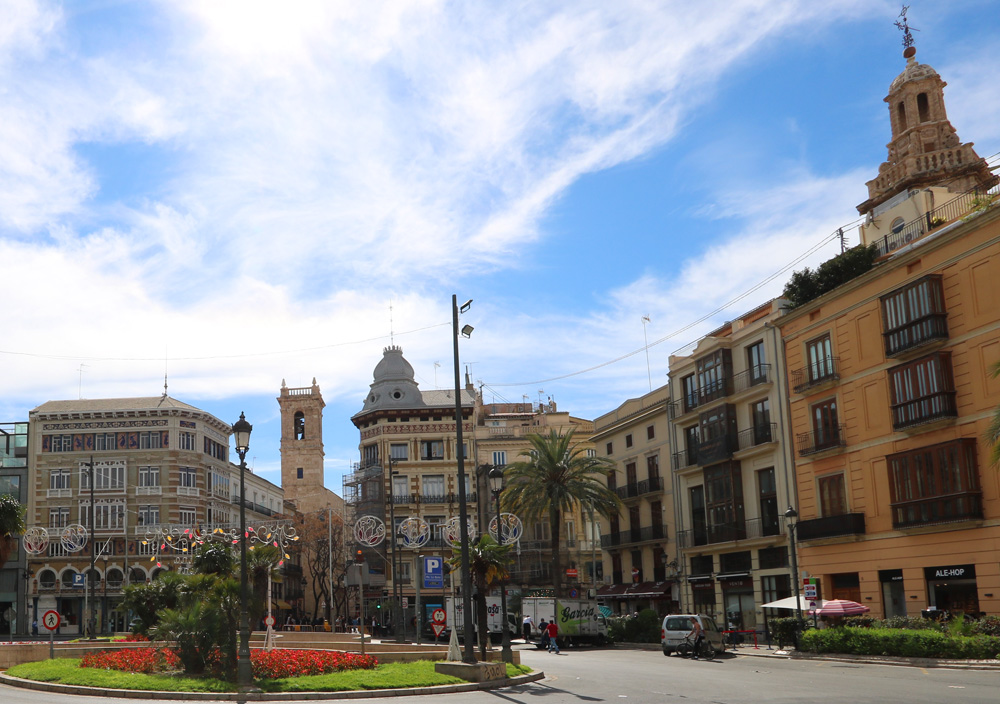
All the provinces and cities have their distinct culture and language. What stands out for you in Valencia?
Valencians are proud of their culture, their language and the products they grow in the Comunidad. Valencia spells oranges, chufas, artichokes, rice and paella to mention just a few. It also spells big parties like the Fallas, and a vibrant artisan community that harken back to the Middle Ages when Valencia was a silk production and trade centre.
Cost of living. Do you own a home or do you rent? Would you mind disclosing how much you pay in rent and how much your utilities come to on a monthly basis?
We decided to rent before buying a home. We pay around 1500 euros a month for a 4-bedroom attached house in an urbanization. We pay about 350 euros for water, electricity, internet services and gas per month. Expatistan.com is a great website to compare costs of living.
What’s your favourite local dish? Is it paella? (I know Valencia is known for the best Paella in Spain.)
It is true that Paella is really tasty (I love the seafood and Valencian), but my favourite dishes, hands down, are tapas! These variety of smaller and tasty dishes are made to share and you can eat them pretty much any time of the day. One thing we noticed is that salt is liberally added to any and all dishes. Perhaps to help the body stay hydrated in the heat.

Do you have any regrets at all? Would you do it all over if you had to do it again? Would you have changed anything?
No regrets at all! But I must say that if I had to do it again, I would have consulted social media groups dedicated to expats in Valencia before moving. This would have helped us find a reputable relocation agent before hitting the ground running.
We wish you patience, good luck and courage in your own expat adventure!
Many thanks to Aline for a great read!
You can connect with Aline on her Linkedin profile.
Related: Spain: the 2nd best Expat destination in 2023
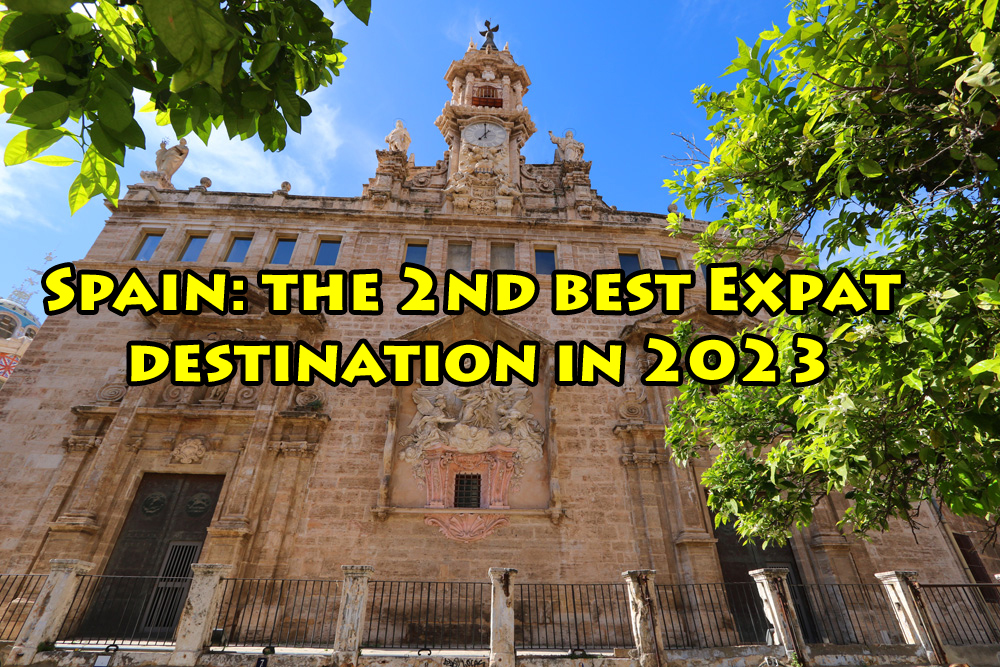
Related: What makes Valencia a great place to live in Spain?
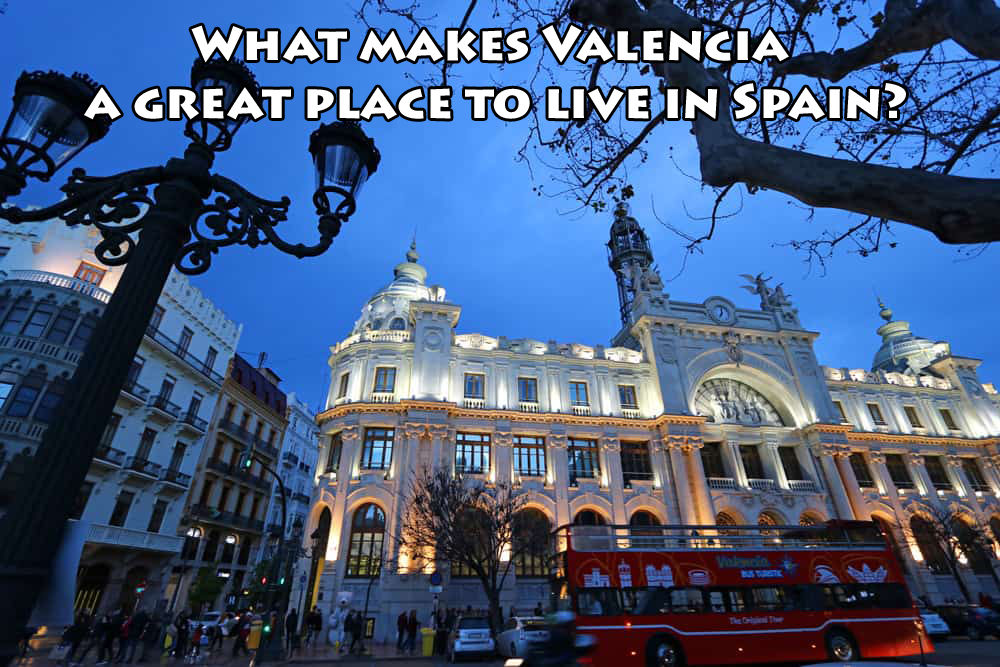
Related: Where to live as a retiree in Spain? Places…and comparing Theory vs Reality
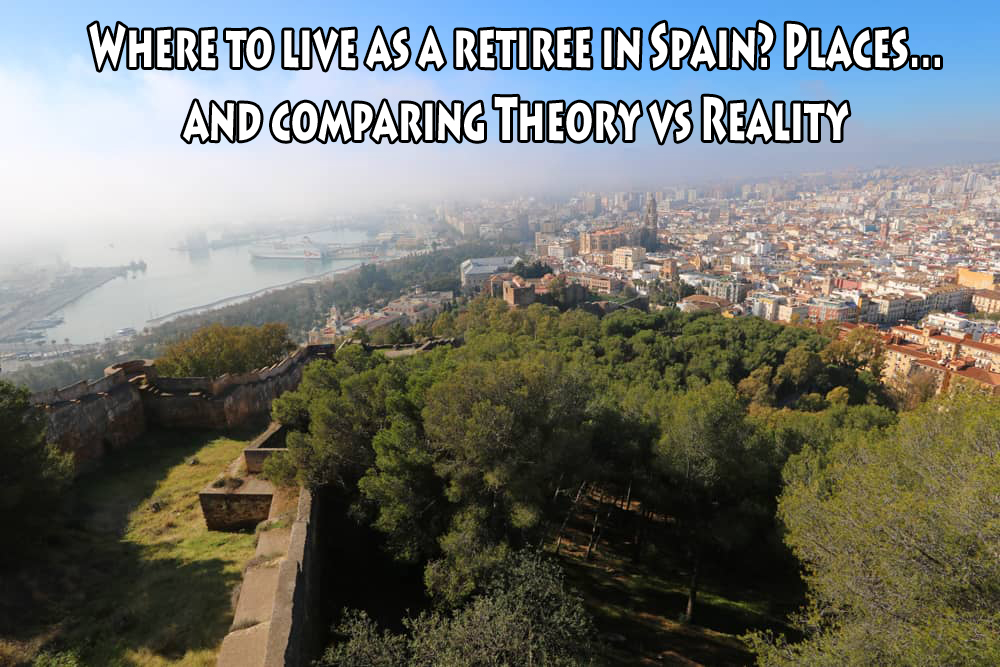

What a great read ! We are in the midst of planning exactly the same move from Montreal to Valencia – with 1 child – and this was a comprehensive analysis of all our worries and hopes! Thanks!
Super! Good luck with you move, and when you get here feel free to contact us. 😊